
Annaba: The Jewel of Algeria's East Coast
Welcome to Annaba, a charming city nestled on Algeria's eastern Mediterranean coastline. Known for its rich history, vibrant culture, and stunning landscapes, Annaba is a treasure trove waiting to be explored. The city is a harmonious blend of ancient ruins and modern attractions, offering something for every type of traveler. Begin your journey with a visit to the ancient city of Hippo Regius, where you can walk among the ruins of Roman amphitheaters and basilicas. The Basilica of St. Augustine, perched on a hill overlooking the city, is a must-see for history buffs. Its impressive architecture and panoramic views of the Mediterranean make it a perfect spot for both learning and relaxation. Annaba is also known for its beautiful beaches. The crystal-clear waters of Ain Achir Beach and Sidi Salem Beach are perfect for swimming, sunbathing, and various water sports. The city's coastline is dotted with charming cafes and seafood restaurants, offering a taste of local cuisine with a view. For those who enjoy nature, the Edough Mountains provide excellent hiking opportunities. The lush, green hills are home to a variety of flora and fauna, making it a paradise for nature lovers. The city also boasts several parks and gardens, such as the Green Main Street, which is perfect for a leisurely stroll. Annaba's vibrant markets are another highlight. The bustling Souk El Hadjar is a great place to shop for local crafts, spices, and textiles. The city’s nightlife is equally exciting, with numerous cafes, bars, and clubs offering a taste of local music and dance. Overall, Annaba is a city that promises a rich cultural experience, breathtaking natural beauty, and warm hospitality. Whether you're a history enthusiast, a beach lover, or an adventure seeker, Annaba has something to offer.
Local tips in Annaba
- Visit early in the morning to avoid crowds at popular sites like the Basilica of St. Augustine.
- Try the local seafood dishes at the beachside restaurants for an authentic culinary experience.
- Carry cash as many local markets and small shops may not accept credit cards.
- Wear comfortable shoes for exploring the ancient ruins and hiking trails.
- Learn a few basic phrases in French or Arabic to help you communicate with locals.
Annaba: The Jewel of Algeria's East Coast
Welcome to Annaba, a charming city nestled on Algeria's eastern Mediterranean coastline. Known for its rich history, vibrant culture, and stunning landscapes, Annaba is a treasure trove waiting to be explored. The city is a harmonious blend of ancient ruins and modern attractions, offering something for every type of traveler. Begin your journey with a visit to the ancient city of Hippo Regius, where you can walk among the ruins of Roman amphitheaters and basilicas. The Basilica of St. Augustine, perched on a hill overlooking the city, is a must-see for history buffs. Its impressive architecture and panoramic views of the Mediterranean make it a perfect spot for both learning and relaxation. Annaba is also known for its beautiful beaches. The crystal-clear waters of Ain Achir Beach and Sidi Salem Beach are perfect for swimming, sunbathing, and various water sports. The city's coastline is dotted with charming cafes and seafood restaurants, offering a taste of local cuisine with a view. For those who enjoy nature, the Edough Mountains provide excellent hiking opportunities. The lush, green hills are home to a variety of flora and fauna, making it a paradise for nature lovers. The city also boasts several parks and gardens, such as the Green Main Street, which is perfect for a leisurely stroll. Annaba's vibrant markets are another highlight. The bustling Souk El Hadjar is a great place to shop for local crafts, spices, and textiles. The city’s nightlife is equally exciting, with numerous cafes, bars, and clubs offering a taste of local music and dance. Overall, Annaba is a city that promises a rich cultural experience, breathtaking natural beauty, and warm hospitality. Whether you're a history enthusiast, a beach lover, or an adventure seeker, Annaba has something to offer.
When is the best time to go to Annaba?
Iconic landmarks you can’t miss
Farouk Land Park
Experience thrilling rides and family fun at Farouk Land Park in Annaba, a vibrant amusement park with attractions for all ages.
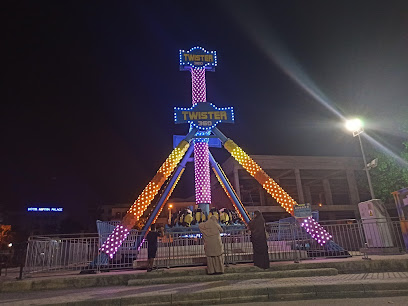
Saint Augustin Basilica
Discover the architectural marvel of Saint Augustin Basilica in Annaba, a testament to faith, history, and cultural fusion.
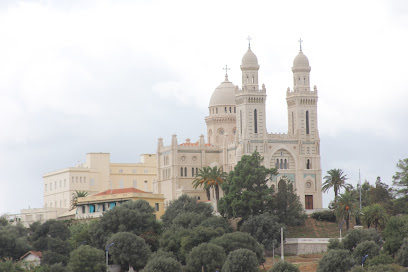
COURS DE LA RÉVOLUTION
Discover Annaba's vibrant heart at Cours de la Révolution: a historical landmark offering culture, commerce, and architectural beauty.
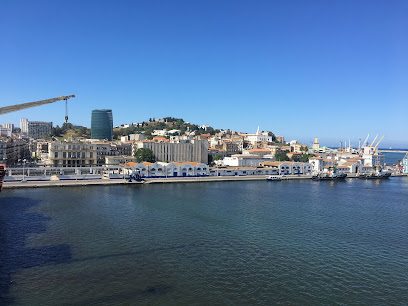
Sunstar Coffee
A charming Annaba café serving delightful coffee, pizzas, and tacos in a cozy atmosphere on the scenic Route de la Baie des Corailleurs.
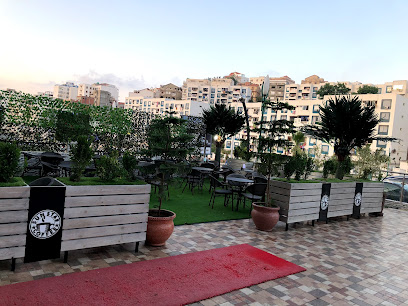
متحف هيبون
استكشف كنوزًا أثرية وتاريخية في متحف هيبون بعنابة، الجزائر. اكتشف الفسيفساء الرومانية والتحف القديمة في هذا المتحف الذي لا بد من زيارته.
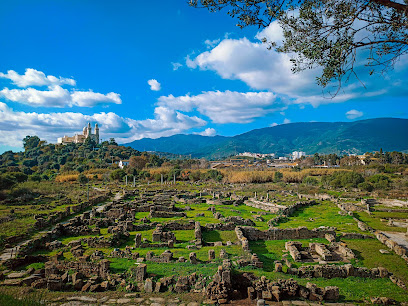
Ruins of Hippo (Hippo Regius)
Discover the ancient city of Hippo Regius near Annaba, Algeria, where Roman history and early Christian heritage come to life.
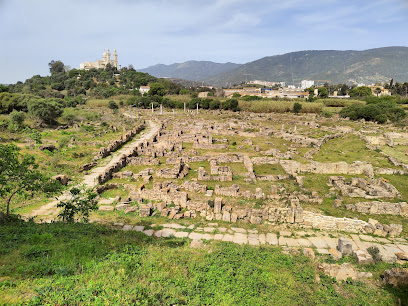
El Manar. (Lighthouse)
Discover El Manar Lighthouse in Annaba: a historic beacon offering breathtaking Mediterranean views and a glimpse into Algeria's maritime past.
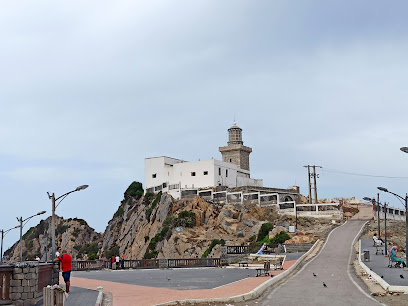
Mosque El Forkane
A contemporary mosque in Annaba, Algeria, providing a serene space for prayer and community.
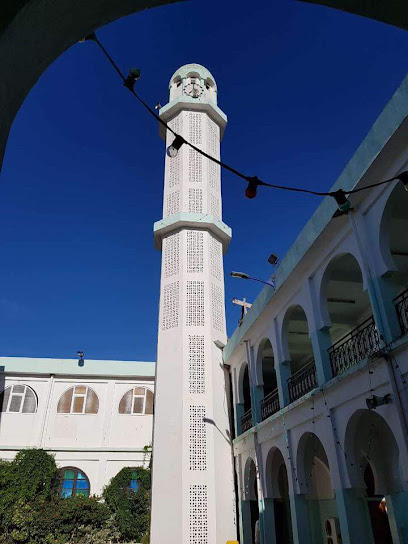
Edough National Park
Discover Edough National Park: Hike scenic trails, spot diverse wildlife, and immerse yourself in Algeria's breathtaking Mediterranean landscape.
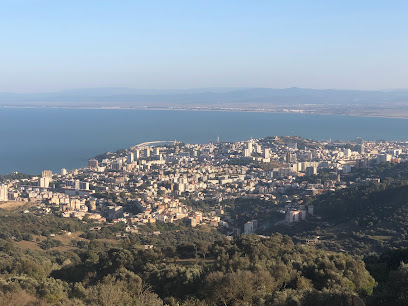
Cap de Garde
Explore Cap de Garde in Annaba: a historic lighthouse offering panoramic Mediterranean views and a serene coastal escape.
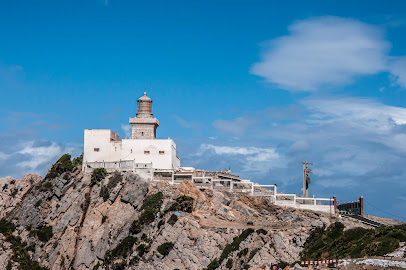
La Placette Alexis Lambert
Escape to a serene garden oasis in Annaba, Algeria. La Placette Alexis Lambert offers tranquility and natural beauty for all visitors.
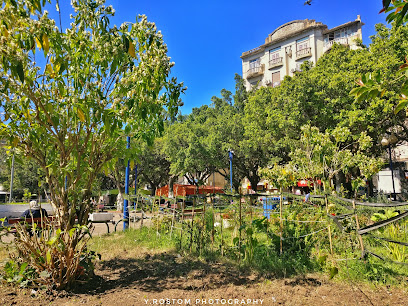
Cap de Garde FAR
Discover breathtaking views and rich maritime history at Cap de Garde FAR, Annaba's iconic lighthouse on the Mediterranean coast.
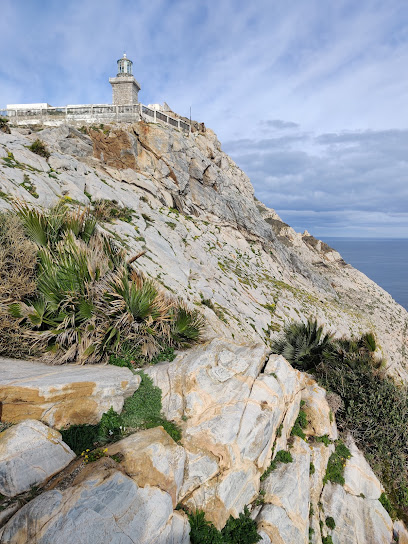
Belvediere Beach
Discover Belvediere Beach in Annaba, Algeria: a picturesque coastal paradise with golden sands, stunning views, and a relaxing Mediterranean atmosphere.
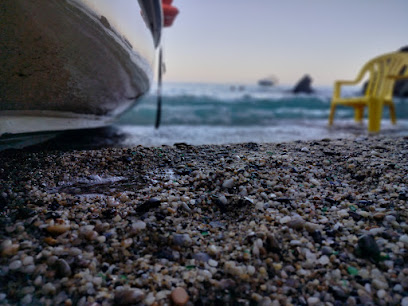
RAS EL HAMRA
Discover the historic Ras El Hamra Lighthouse in Annaba, offering stunning views and local legends from Algeria's Mediterranean coast.
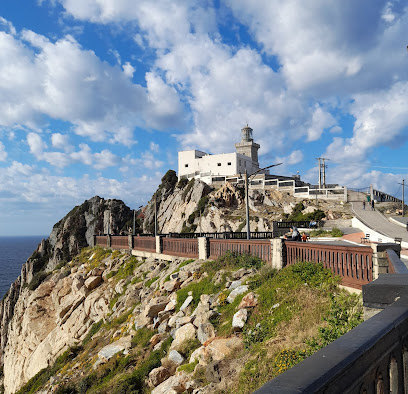
Mosquée Salaah El Bey جامع صالح باي
Explore Annaba's Mosquée Salaah El Bey: a symbol of Islamic art, Turkish influence, and cultural richness in Algeria.
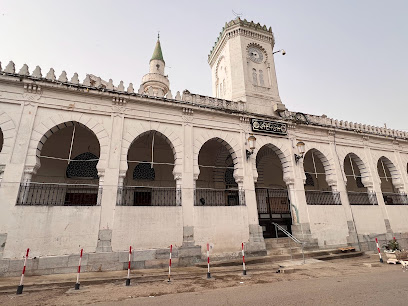
Unmissable attractions to see
Farouk Land Park
Experience thrilling rides and family fun at Farouk Land Park, Annaba's premier amusement destination for all ages!
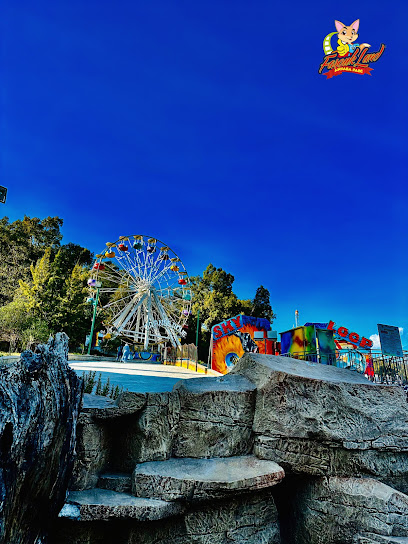
متحف هيبون
استكشف كنوزًا أثرية وتاريخًا عريقًا في متحف هيبون بعنابة، الجزائر. اكتشف الفسيفساء الرومانية والتحف القديمة.
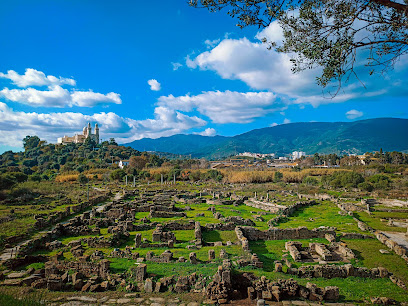
Ruins of Hippo (Hippo Regius)
Explore the ancient city of Hippo Regius near Annaba, where Roman ruins and Christian history intertwine on Algeria's Mediterranean coast.
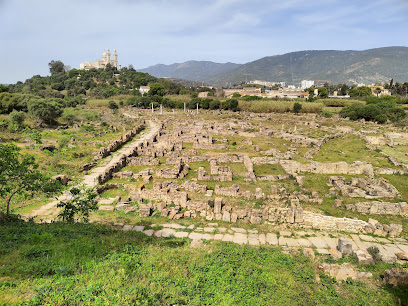
ساحة الثورة
Discover Annaba's Revolution Square: a vibrant hub of history, culture, and community in the heart of the city.
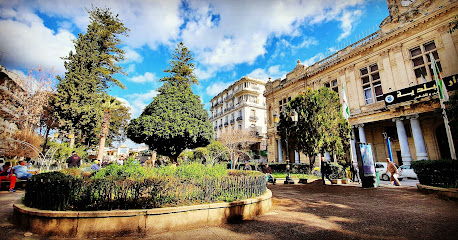
forest adventure annaba
Experience thrilling treetop adventures and ziplining amidst the natural beauty of Annaba's Parc Citadin de Ain Achir.
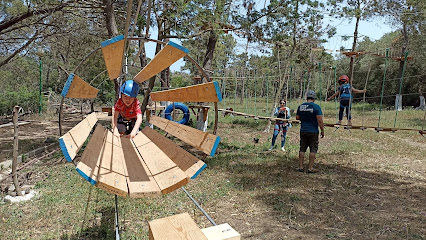
La Placette Alexis Lambert
Escape to the serene beauty of La Placette Alexis Lambert in Annaba, a revitalized garden offering a tranquil retreat in the heart of the city.
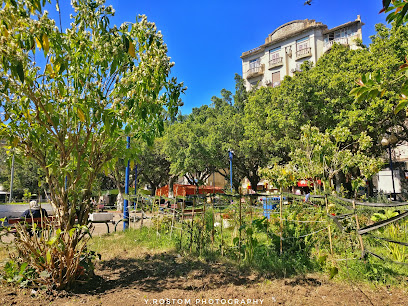
الفنار عنابة
Explore الفنار عنابة, a historic lighthouse offering stunning views of Annaba and the Mediterranean, steeped in Algeria's maritime history.
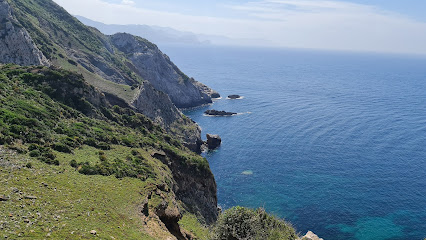
شاطئ عين عشير . عنابة
Discover Ain Achir Beach in Annaba: Golden sands, clear waters, and a serene Mediterranean escape await!
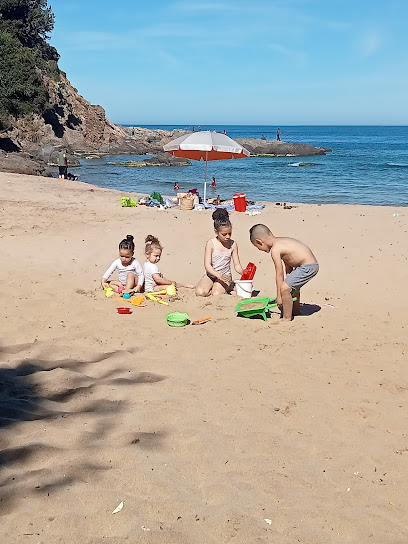
Roman Theatre of Hippo
Step back in time at the Roman Theatre of Hippo Regius in Annaba, where ancient history comes to life.
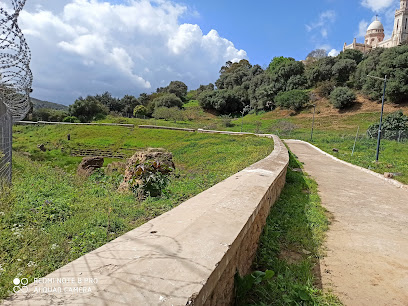
Parc Méditerranéen citadin Annaba
Escape to nature in the heart of Annaba at Parc Méditerranéen Citadin, a green oasis for relaxation and recreation.
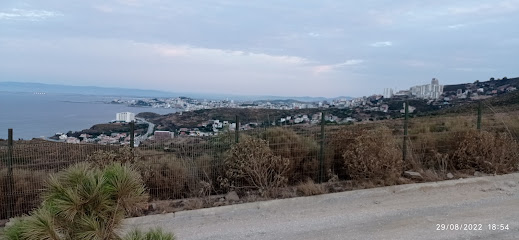
Great Church of Hippo Regius.
Discover the ancient Great Church of Hippo Regius in Annaba, Algeria, a historical landmark linked to Saint Augustine and early Christianity.
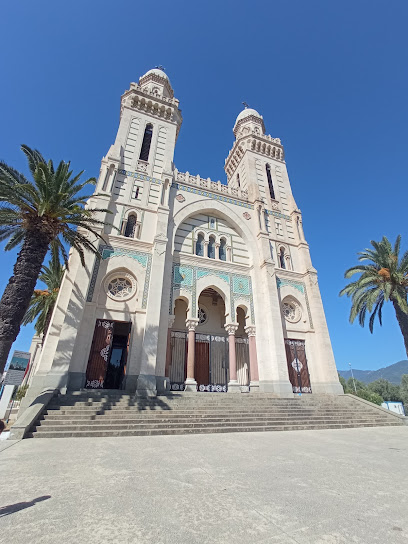
Izem Land Park
Experience thrilling rides and family fun at Izem Land Park, Annaba's top amusement destination for all ages!

Placette cap Annaba
Experience the breathtaking views and vibrant atmosphere of Placette Cap Annaba, a must-visit coastal gem in Algeria.
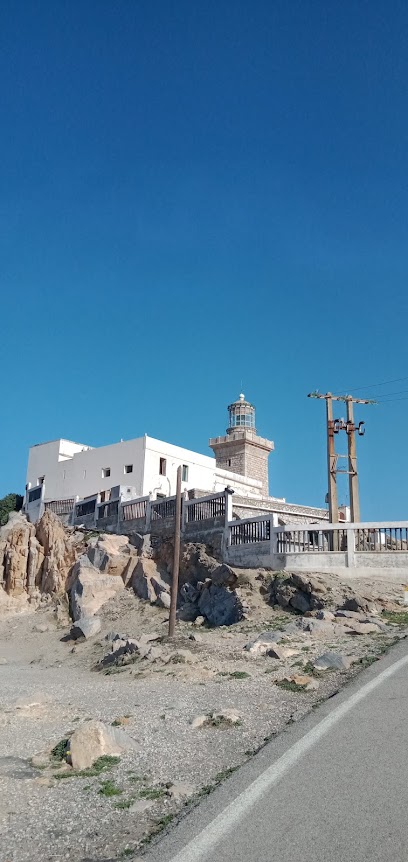
Trampoline
Experience exhilarating fun for all ages at Annaba's Trampoline Park, featuring wall-to-wall trampolines, foam pits, and dodgeball arenas!
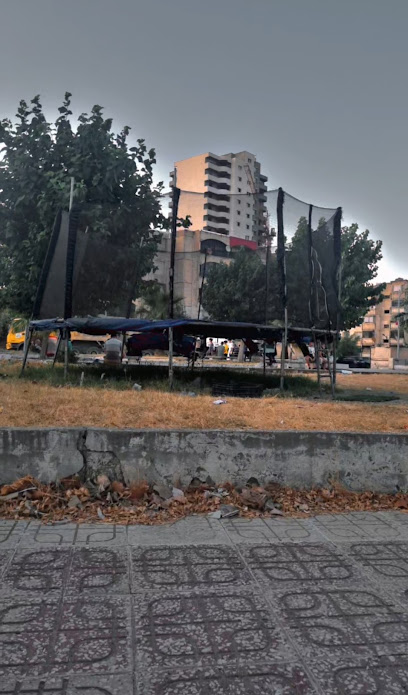
Essential places to dine
Restaurant Tabarka
Discover authentic Algerian cuisine at Restaurant Tabarka in Annaba – where every meal tells a story.
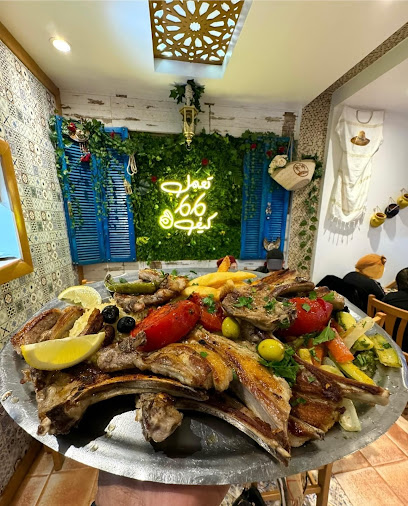
El-Walima
Discover authentic Algerian cuisine at El-Walima in Annaba – where every dish is a taste of tradition.
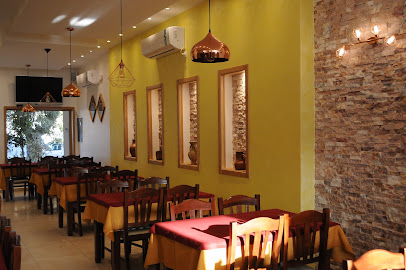
Restaurant La Perle
Discover Restaurant La Perle in Annaba – where authentic Algerian flavors meet delightful culinary experiences in an inviting setting.
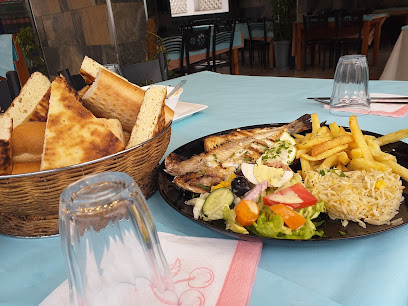
Restaurant La Caravelle
Experience authentic Algerian cuisine at Restaurant La Caravelle in Annaba - a culinary gem offering local flavors and warm hospitality.
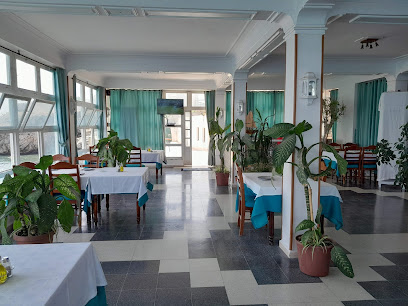
RAY'S
Experience the vibrant flavors of Saint Cloud at RAY'S - where culinary artistry meets local charm.
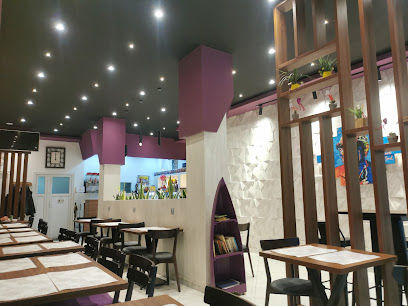
Village de Neige
Experience the heart of Algerian cuisine at Village de Neige in Annaba – where flavor meets warmth in every dish.
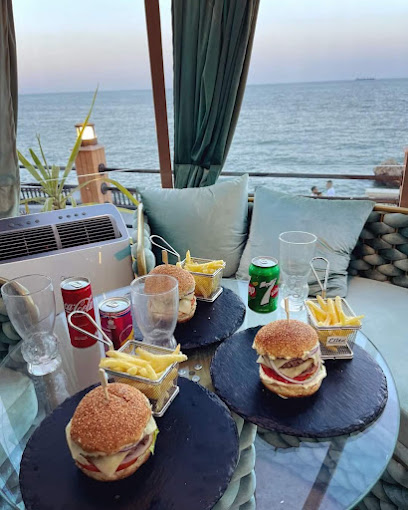
Restaurant Le Pêcheur
Discover authentic Algerian cuisine at Restaurant Le Pêcheur in Annaba, where fresh seafood meets local tradition in a charming atmosphere.
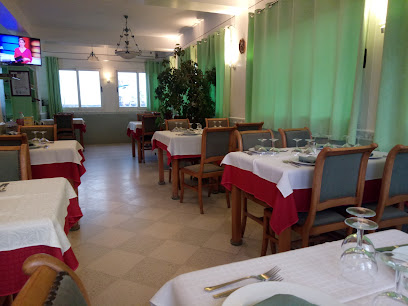
Red Pepper
Discover authentic Algerian cuisine at Red Pepper in Annaba—where every dish tells a story.
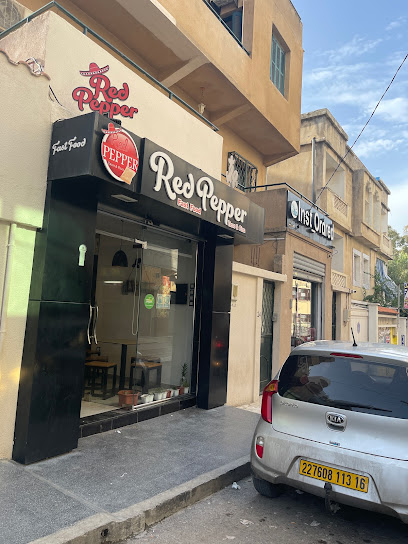
Le Bambou
Discover authentic Algerian cuisine at Le Bambou in Annaba - where tradition meets taste in a warm and inviting atmosphere.
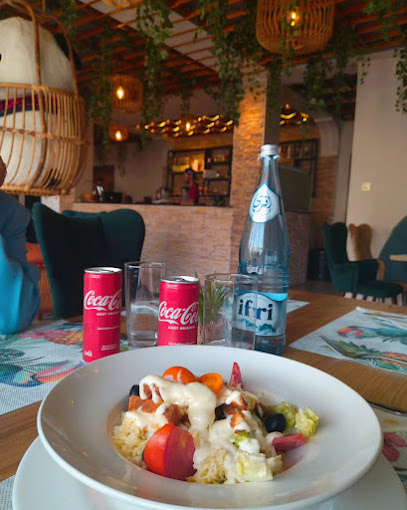
Restaurant La Renaissance
Experience authentic Algerian cuisine with stunning views at Restaurant La Renaissance in Annaba.
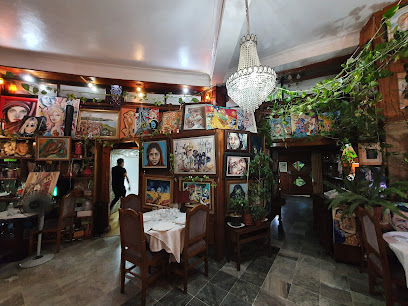
Pacha Corniche
Experience authentic Algerian cuisine at Pacha Corniche in Annaba – where flavor meets stunning coastal views.
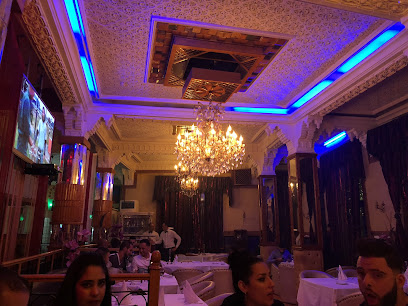
TRIP'S GRILL
Experience authentic Algerian cuisine at Trip's Grill in Seraïdi—where flavor meets tradition in a cozy setting.
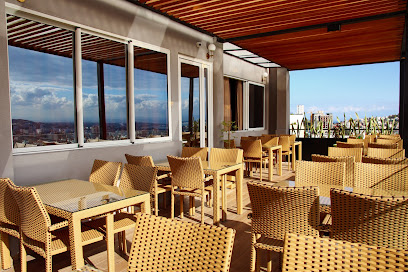
Eucalyptus
Experience authentic Algerian cuisine at Eucalyptus in Annaba – where every meal comes with stunning Mediterranean views.
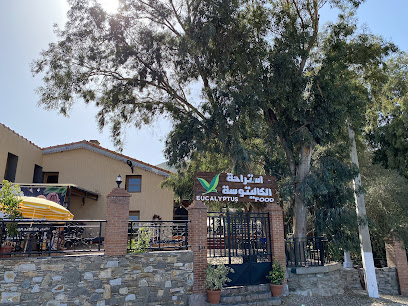
La Potinière
Experience authentic Algerian cuisine at La Potinière in Annaba—where every meal tells a story of tradition and flavor.
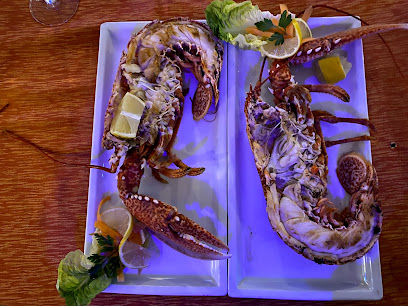
Diyarbakir Turkish Restaurant
Savor authentic Turkish cuisine at Diyarbakir Turkish Restaurant in Annaba - where every dish tells a story.
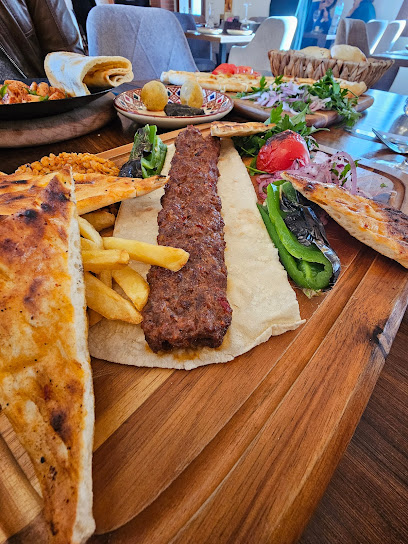
Markets, malls and hidden boutiques
Jennyfer Annaba
Discover chic and trendy women's clothing at Jennyfer Annaba, the ultimate shopping destination for fashion lovers.
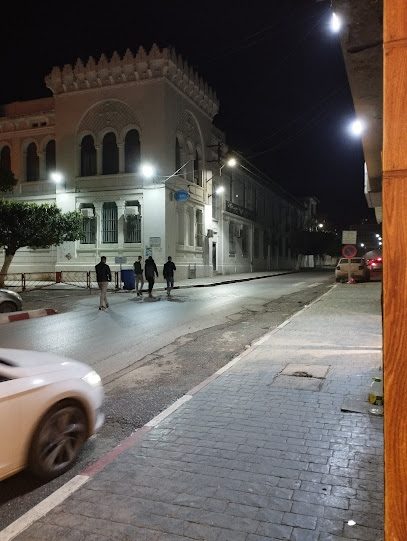
Celio
Explore Celio in Annaba for stylish menswear that blends modern trends with local charm.
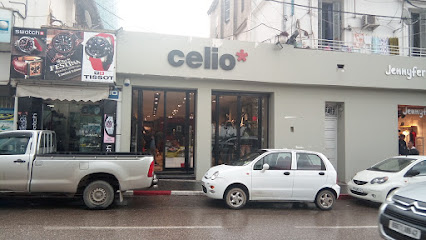
Victoria Shop
Explore Victoria Shop in Annaba for a unique selection of women's clothing that blends local charm with modern fashion trends.
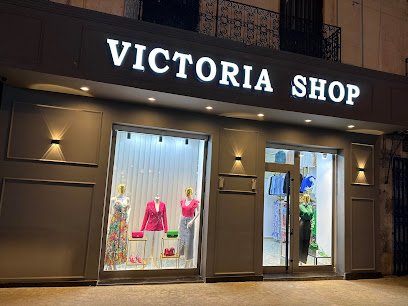
2M fashion 1 Annaba
Explore 2M Fashion in Annaba for trendy clothing and unique local styles, perfect for every fashion lover.
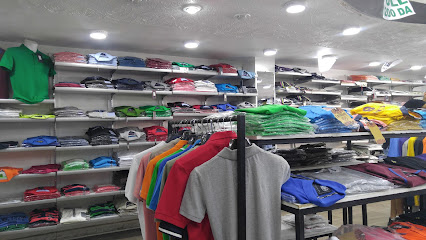
BOUTIQUE COSMOS
Explore the vibrant Boutique Cosmos in Annaba for a unique shopping experience featuring local and international brands, dining, and entertainment options.
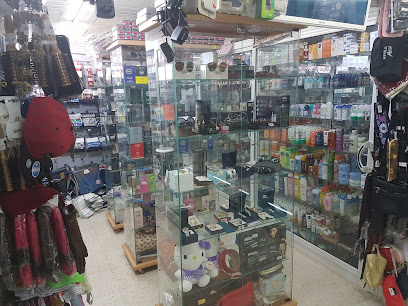
Magasin Toute Belle Annaba
Discover unique fashion at Magasin Toute Belle in Annaba, a stylish clothing store offering local flair and modern trends for every taste.
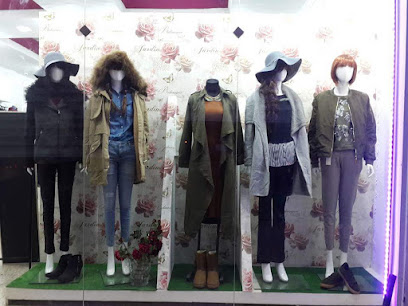
Zara annaba
Discover the latest fashion trends at Zara Annaba, where contemporary style meets local flair in a vibrant shopping experience.
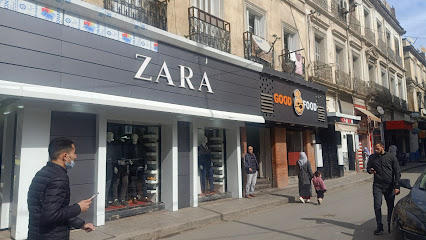
Unification Library and piety clothes
Explore unique Algerian fashion at Unification Library and Piety Clothes, where tradition meets modern style in the heart of Annaba.

Magasin bonjour annaba
Magasin Bonjour Annaba: Your go-to health food store for organic products and local delicacies in the heart of Annaba.
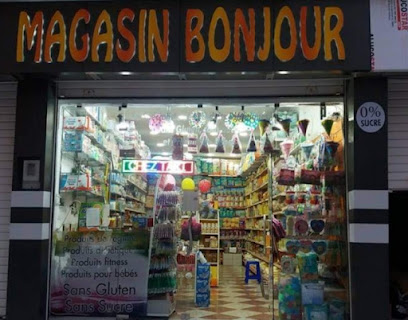
الفخارين
Explore الفخارين in Annaba, Algeria - your ultimate destination for unique handcrafted gifts and local treasures.
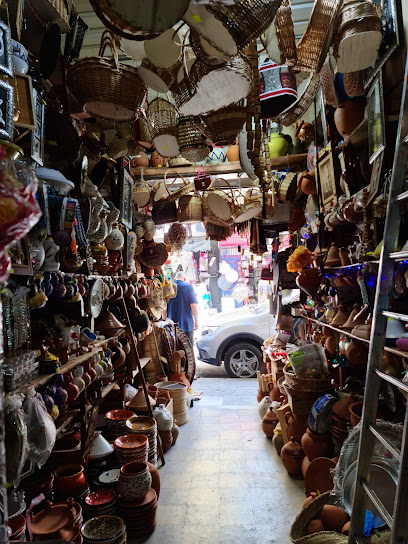
دار القفطان
Discover Dar Al-Qaftan in Annaba, where traditional elegance meets contemporary fashion in a unique women's clothing boutique.
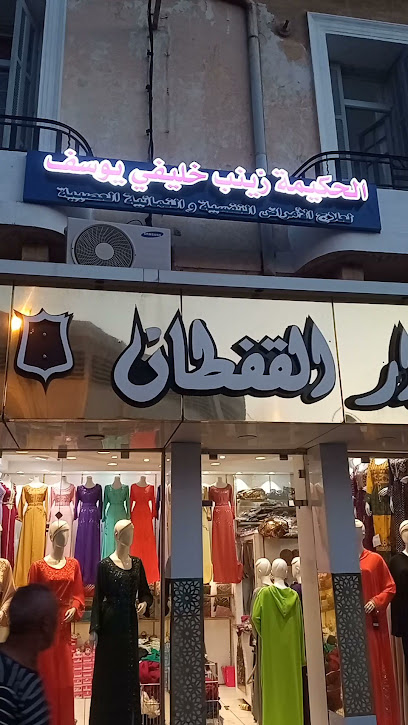
Marios Shopping
Discover the charm of Marios Shopping in Annaba, where quality luggage, leather goods, shoes, and perfumes await every discerning traveler.
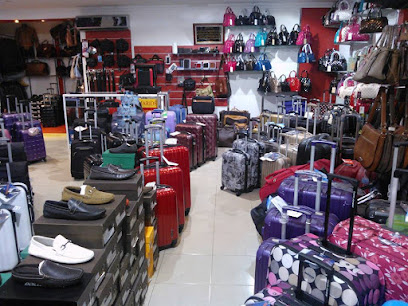
Çanta shop annaba
Discover Çanta Shop in Annaba for all your luggage needs, offering quality travel solutions with exceptional service.

FRIENDS SHOP
Discover the essence of women's fashion at FRIENDS SHOP in Annaba, where style meets affordability and personal service.
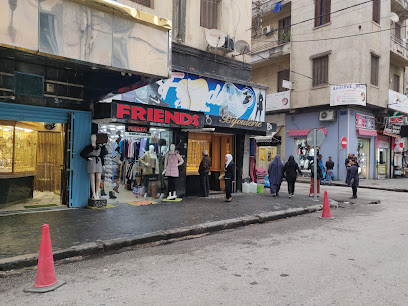
Boutique Ismahen Tissus
Experience the rich textile heritage of Annaba at Boutique Ismahen Tissus, where quality fabrics meet unique designs.
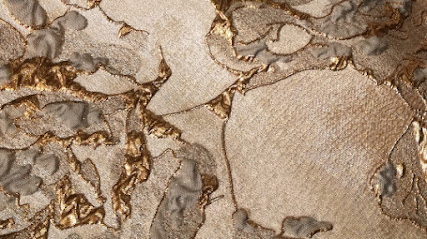
Essential bars & hidden hideouts
The D&K Lounge
Discover the flavors of Algeria at The D&K Lounge in Annaba, where grilled dishes meet a cozy atmosphere for an unforgettable dining experience.
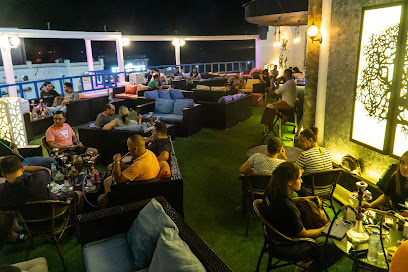
Bar Restaurant Le Grand Bleu
Discover the flavors of Algeria at Bar Restaurant Le Grand Bleu, a beachfront dining experience in Annaba that delights the senses.
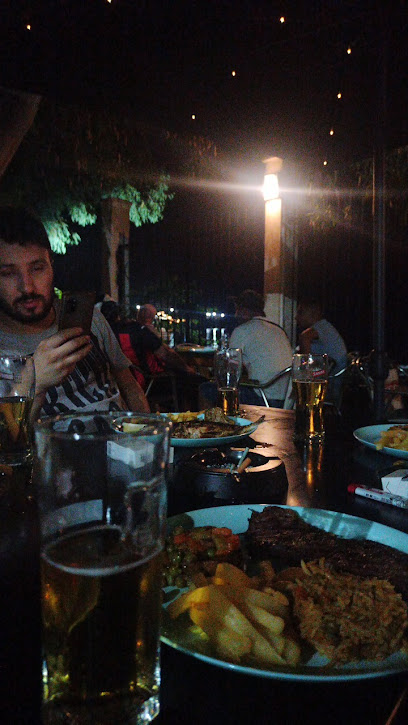
أولاد هداج
Discover the vibrant nightlife at أولاد هداج, a cultural bar in Annaba, offering a unique blend of local drinks and lively music for an unforgettable experience.

Casa del rìo (Salon de thé Chicha & Restauration rapide)
Discover Casa del río, Annaba's premier grill restaurant, where delicious flavors and a welcoming atmosphere await every visitor.

LE BAMAKO
Discover the vibrant nightlife at Le Bamako, a lounge in Annaba where culture and relaxation meet in an inviting atmosphere.
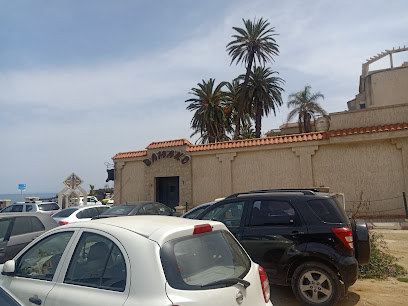
Snack Darek
Experience the authentic taste of Annaba at Snack Darek, where delicious grilled dishes meet warm hospitality in a vibrant atmosphere.
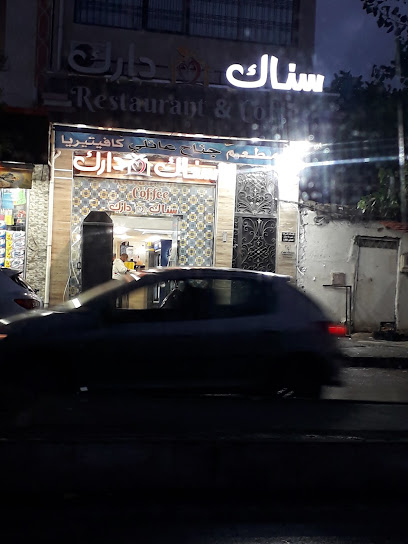
Cafétéria Alaouia
Discover the flavors of Annaba at Cafétéria Alaouia, a top-rated grill spot known for its delightful dishes and inviting atmosphere.

Ann
Discover the lively spirit of Ann Bar in Annaba, where local flavors meet international tastes in a vibrant setting.

مخمرة
Discover the essence of Algerian winemaking at مخمرة, a charming wine bar in Annaba offering exquisite local wines and a cozy atmosphere.

Saroukh
Experience the vibrant nightlife of Annaba at Saroukh, where great drinks and lively atmosphere come together for an unforgettable evening.

Sekranin
Experience the vibrant nightlife of Annaba at Sekranin, a lively bar perfect for relaxation and socializing with locals and fellow travelers.

Samroune
Discover the charm of Samroune, a cozy bar in Annaba, where locals gather and tourists unwind with delightful drinks and a vibrant atmosphere.

Bar es safir
Experience the vibrant nightlife of Annaba at Bar es Safir, where local flavors and lively ambiance come together in an unforgettable setting.

Sid ali
Discover the vibrant nightlife at Sid Ali in Annaba, where locals and tourists come together over drinks in a lively, welcoming atmosphere.

Local Phrases
-
- Helloمرحبا
[marhaba] - Goodbyeوداعا
[wadaean] - Yesنعم
[naam] - Noلا
[laa] - Please/You're welcomeمن فضلك/على الرحب والسعة
[min fadlek/ala ar-rahb was-sa'a] - Thank youشكرا
[shukran] - Excuse me/Sorryعذرا
[aadhran] - How are you?كيف حالك؟
[kayfa haluk?] - Fine. And you?بخير. وأنت؟
[bikhayr. wa anta?] - Do you speak English?هل تتحدث الإنجليزية؟
[hal tatahadath al'inglizia?] - I don't understandأنا لا أفهم
[ana la afham]
- Helloمرحبا
-
- I'd like to see the menu, pleaseأريد أن أرى القائمة، من فضلك
[uridu an ara alqaimah, min fadlek] - I don't eat meatأنا لا آكل اللحم
[ana la aakul allahm] - Cheers!في صحتك!
[fi sahtak!] - I would like to pay, pleaseأود أن أدفع، من فضلك
[awadu an adfae, min fadlek]
- I'd like to see the menu, pleaseأريد أن أرى القائمة، من فضلك
-
- Help!النجدة!
[annajdah!] - Go away!انصرف!
[ansarif!] - Call the Police!اتصل بالشرطة!
[atassil bilshurta!] - Call a doctor!اتصل بالطبيب!
[atassil biltabib!] - I'm lostأنا ضائع
[ana daa'ie] - I'm illأنا مريض
[ana mareed]
- Help!النجدة!
-
- I'd like to buy...أريد أن أشتري...
[uridu an ashtari...] - I'm just lookingأنا فقط أتفرج
[ana faqat atfarij] - How much is it?كم سعره؟
[kam sa'ruh?] - That's too expensiveهذا غالي جدا
[hatha ghaali jiddan] - Can you lower the price?هل يمكنك خفض السعر؟
[hal yumkinuka khafdal sa'ra?]
- I'd like to buy...أريد أن أشتري...
-
- What time is it?كم الساعة؟
[kam assaa'a?] - It's one o'clockالساعة الواحدة
[assaa'ah alwahidah] - Half past (10)العاشرة والنصف
[al'ashirah walnusf] - Morningالصباح
[assabah] - Afternoonالظهر
[adhuhur] - Eveningالمساء
[almasa'] - Yesterdayأمس
[ams] - Todayاليوم
[alyawm] - Tomorrowغدا
[ghadan] - 1واحد
[wahed] - 2اثنين
[ithnayn] - 3ثلاثة
[thalatha] - 4أربعة
[arba'a] - 5خمسة
[khamsa] - 6ستة
[sitta] - 7سبعة
[sab'a] - 8ثمانية
[thamaniya] - 9تسعة
[tisa'a] - 10عشرة
[ashara]
- What time is it?كم الساعة؟
-
- Where's a/the...?أين...
[ayn...] - What's the address?ما هو العنوان؟
[ma huwa al'unaan?] - Can you show me (on the map)?هل يمكنك أن تريني (على الخريطة)؟
[hal yumkinuka an tureeni (ala alkhareeta)?] - When's the next (bus)?متى الحافلة القادمة؟
[mata alhafilah alqadimah?] - A ticket (to ....)تذكرة (إلى ...)
[tazkirah (ila ...)]
- Where's a/the...?أين...
History of Annaba
-
Annaba, formerly known as Hippo Regius, was an important city in the Roman Empire. Founded in the 4th century BC by the Phoenicians, it later became a major center of Christianity. The city is famous for being the home of Saint Augustine, one of the most influential Christian theologians, who served as the bishop of Hippo Regius from 396 AD until his death in 430 AD.
-
After the fall of the Western Roman Empire, Hippo Regius came under the control of the Byzantine Empire in the 6th century. The city retained its importance as a religious center and saw the construction of several significant churches and fortifications. However, it was eventually captured by the Vandals in the 5th century before being reconquered by the Byzantines.
-
In the 7th century, the region, including Hippo Regius, was conquered by the Umayyad Caliphate during the Islamic expansion. The city was renamed Annaba, which means 'Place of Jujubes' in Arabic. Under Islamic rule, Annaba flourished as a trading hub and saw a blend of Arab and Berber cultures.
-
In the 16th century, Annaba came under Ottoman control and remained part of the Ottoman Empire for over 300 years. During this period, the city became an important port and trading center in the Mediterranean. The Ottomans built forts and other structures that still stand today, contributing to the city's rich architectural heritage.
-
Annaba fell under French colonial rule in the 19th century, becoming part of French Algeria. The French developed the city's infrastructure, including roads, schools, and hospitals. However, colonial rule also brought significant social and economic changes, and the city became a focal point for nationalist movements seeking independence.
-
After Algeria gained independence from France in 1962, Annaba became an important industrial center. The port of Annaba is one of the largest in Algeria, facilitating the export of minerals and other goods. The city has continued to grow and modernize, while also preserving its rich historical and cultural heritage.
Annaba Essentials
-
Annaba, located in northeastern Algeria, is accessible via Rabah Bitat Airport (AAE), approximately 9 kilometers from the city center. International flights from Europe and domestic flights from major Algerian cities such as Algiers and Oran connect to this airport. Alternatively, the city can be reached by train from Algiers, with services operated by the National Company for Rail Transport (SNTF). Buses and taxis are also available for travel from other Algerian cities.
-
Public transportation in Annaba includes buses, taxis, and shared taxis known as 'clandos'. Buses are the most budget-friendly option, with routes covering the main parts of the city. Taxis are more convenient and can be hailed on the street or booked via phone. Shared taxis offer a middle-ground solution, providing faster service than buses but at a lower cost than private taxis. Car rentals are also available for those who prefer to drive themselves.
-
The official currency in Algeria is the Algerian Dinar (DZD). Credit cards are accepted in some hotels, restaurants, and larger stores, but cash is preferred in smaller establishments and markets. ATMs are widely available, especially in the city center. It is advisable to carry sufficient cash, particularly if you plan to visit more remote areas.
-
Annaba is generally safe for tourists, but it is wise to take standard precautions. Avoid displaying valuables openly and be cautious in crowded areas such as markets and public transport. Certain neighborhoods, like El Hattab and the area around the train station, have higher crime rates and should be avoided, especially after dark. Always stay aware of your surroundings and trust your instincts.
-
In case of emergency, dial 14 for police, 16 for emergency medical services, and 19 for the fire department. The main hospital in Annaba is the Ibn Rochd University Hospital Center, which offers comprehensive medical services. Pharmacies are available throughout the city for minor health issues. It is recommended to have travel insurance that covers medical emergencies.
-
Fashion: Do dress modestly, especially when visiting religious sites. Avoid revealing clothing. Religion: Do respect local customs and traditions. Remove your shoes before entering mosques. Public Transport: Do be respectful and give up your seat to elderly passengers. Don't eat or drink on public transport. Greetings: Do greet people with a handshake. A slight bow of the head is also a sign of respect. Eating & Drinking: Do try local delicacies and accept food offerings graciously. Don't refuse hospitality, as it is considered impolite.
-
To experience Annaba like a local, visit the city's bustling markets such as the Souk El-Hattab, where you can buy fresh produce, spices, and traditional Algerian goods. Engage with locals, who are often friendly and willing to share stories about their city. Don't miss visiting the ancient ruins of Hippo Regius, a testament to the city's rich Roman history. For a unique experience, enjoy a stroll along the scenic Corniche or relax at one of the city's beautiful beaches like Ain Achir Beach.
Trending Landmark in Annaba
-
Farouk Land Park
-
Saint Augustin Basilica
-
COURS DE LA RÉVOLUTION
-
Sunstar Coffee
-
متحف هيبون
-
Ruins of Hippo (Hippo Regius)
-
El Manar. (Lighthouse)
-
Mosque El Forkane
-
Edough National Park
-
Cap de Garde
-
La Placette Alexis Lambert
-
Cap de Garde FAR
-
Belvediere Beach
-
RAS EL HAMRA
-
Mosquée Salaah El Bey جامع صالح باي
Nearby Cities to Annaba
-
Things To Do in Constantine
-
Things To Do in Bizerte
-
Things To Do in Tunis
-
Things To Do in Setif
-
Things To Do in Bejaia
-
Things To Do in Hammamet
-
Things To Do in Sousse
-
Things To Do in Monastir
-
Things To Do in Tizi Ouzou
-
Things To Do in Tozeur
-
Things To Do in Sfax
-
Things To Do in Algiers
-
Things To Do in Djerba
-
Things To Do in Palermo
-
Things To Do in Palma de Mallorca









